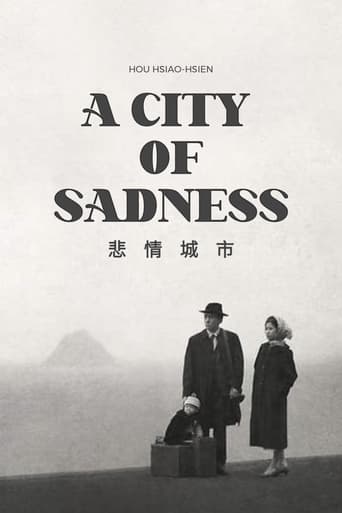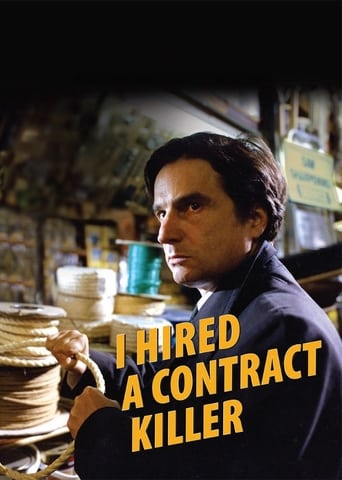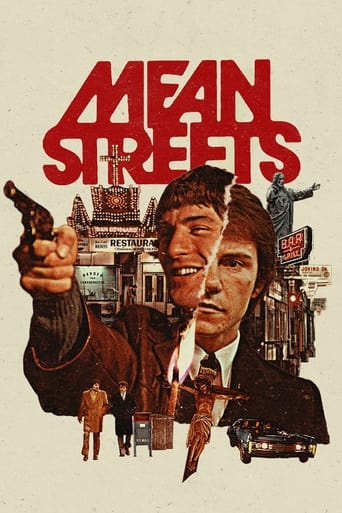


A City of Sadness
The story of a family embroiled in the "White Terror", mainland China's political repression that was wrought on the Taiwanese people by the Kuomintang government in the late 1940s.
-
- Cast:
- Tony Leung Chiu-wai , Hsin Shu-Fen , Chan Chung-Yung , Jack Kao , Tai Bo , Li Tian-Lu , Grace Chen Shu-Fang


Reviews
That was an excellent one.
Simply A Masterpiece
Just what I expected
This is a coming of age storyline that you've seen in one form or another for decades. It takes a truly unique voice to make yet another one worth watching.
Hou Hsiou-Hsien's "A City of Sadness" is one of Oriental Cinema's most rewarding challenges. I have returned to it several times, always with a sense of awe, understanding it a little more on each occasion but still not always sure what is actually happening on the screen. Although this makes the experience sometimes frustrating, the miracle is that it never detracts from the gut feeling I have had from the very first viewing that I am watching a masterpiece. An ambitious attempt to capture the immediate post second world war period of Taiwanese history by following the members of one family through fragments of their daily lives rather than a carefully constructed continuous narrative, Hou's work resonates with tremendous feeling. As is usual with this director, the audience has to work hard to supply connections in a film without joins, in order to understand who is who and what is actually going on. I have to admit that some of the scenes of gang violence still elude me, but, these apart, the light is beginning to shine through. It is clear that the old man with the beret who sits often staring vacantly is the owner of that densely furnished restaurant; that he has four sons. The eldest, the sturdy looking one, seems perennially mixed up with figures of a gangster underworld, the second has returned from the war mentally damaged, the third did not return from active service in the Phillipines and is presumed dead. And then there is the youngest who has a photographer's studio and seems completely apart from the rest of the family by virtue of a sensitive, gentle nature and the disability of complete deafness brought on by a childhood accident. It is his fortunes and those of the young nurse he eventually marries that provide the sense of audience empathy that even the most obscure cinema need in order to work its magic. Their scenes provide moments of great tenderness in a relationship that relies entirely for communication on the written note such as the occasion when she needs to tell him about the beauty of a German folksong that is being played. When the country is placed under repressive martial law with massed executions for dissenters we have snippets of the deaf mute's experiences. There is a particularly telling moment when he is in captivity, unable to hear the sound of the firing squad from which he somehow mercifully escapes. In "A City of Sadness" it is short scenes such as this that one remembers so vividly. That it provides the experience of a sweeping epic without recourse to any great scenes of action is both its mystery and fascination.
As my age, several section in this film makes me feel funny, such as the way they behavior, the words they said. It is too unbelievable for me to drive me away to feel the sadness. Just like listen to a story.However, it did happen. Several events I have heard from my grandmother; the setting is also like my mother's house in south country; the location, Chiu-Fen, I visited several months ago is still similar with the scene in the film. All I know about this period are from history books. Time would wipe people's memory. In case people would forget the sadness in our history, movie provides us to retract some part of that moment in our past time to allow us to learn what had happened around us. I have to say this movie is worth every people with any age in Taiwan or from Taiwan to see once in your life.
On the evening of February 27th, 1947 in Taipei, police ruthlessly beat a woman selling illegal cigarettes and the next day opened fire on a protest demonstration outside the Presidential Palace. Years of resentment against a government increasingly defined by nepotism, corruption, and suppression of human rights exploded in open conflict. As soon as the troops arrived, they began the systematic round up and execution of scholars, lawyers, doctors, students and local leaders of the protest movement. In total between 18,000 and 28,000 people were murdered by Chinese troops sent from the mainland by Chiang Kai-shek. Thousands of others were arrested and imprisoned and martial law was established in what became known as the "White Terror" campaign.Hou Hsiao-hsien's magnificent 1989 film, City of Sadness, brings to light the truth about the 1947 massacre known as the 2/28 incident. Winner of the Golden Lion Award at the 1989 Venice Film Festival, City of Sadness treats one of the key issues of Taiwanese history, yet is far from being a political film. Its focus is not on the bloodshed but on the consequences for a particular family and how individual experience is impacted by the flow of time and history. In the film, Wen-heung (Chen Sown-yung), the oldest of four Lin brothers, tries to hold the family together with the support of Ah-lu (Li Ten-lu), the family patriarch. A brutish, feverishly emotional man, he has turned his Japanese bar into a family restaurant known as "Little Shanghai" but finds his business undermined by ruthless Shanghai gangsters. The second brother, Wen-sun disappeared in the Philippines and is talked about but never seen in the film.Brother number three, Wen-leung (Jack Gao) suffered mental problems as a direct result of the war and is bedridden at a local hospital. Amazingly, he recovers enough to deal with Shanghai drug smugglers but is framed as a Japanese collaborator and, after being beaten in prison, loses his mental balance again. The fourth Lin brother, Wen-ching is deaf and runs a photography studio. Wen-ching is involved with young anti-government socialists such as his friend Hinoe (Wu Yi-fang) who is forced to flee to the mountains to join the guerillas. Wen-ching also wants to join the movement but is persuaded to stay home and care for Hinoe's sister, Hinome (Hsin Shu-fen), a nurse, who loves him.As in all of Hou's films, there are no peak moments of dramatic interest to which everything else is simply a build up. The camera simply records the events from a distance without judgment or evaluation, allowing the complexities of the characters and situations to gradually unfold. Everything is relevant -- taking care of the baby, eating, cleaning the floor, and washing the dishes. This attention to the ordinary makes us realize that history happens to everyone, not only in the battlefield, but also in the quiet of everyday life. Far from being bogged down in banality, however, the film achieves transcendence in moments such as Hinome and Wen-ching listening to a German folk song, Wen-ching imitating the voice of an opera singer when he was only eight, the solitary flight of a bird after a sudden death, and the gentle caressing voiceover of Hinome.City of Sadness is a remarkable portrait of one of the most traumatic events in Taiwanese history and its popularity in Taiwan reflected its willingness to deal with a previously taboo subject. Hou said, "I didn't make A City of Sadness because I purposely wanted to open up old wounds'.but because I know that we have to face ourselves and our history if we are ever to understand who we are and where we're going." Though the film was criticized by some for being "politically ambiguous" and "historically inaccurate, the film's depiction of political events and its impact on Taiwan is clear and unmistakable. City of Sadness will not satisfy those seeking a political expose, but Hou's refusal to trivialize events for the sake of emotional appeal gives the film a universality of spirit that ensures its place among the most powerful cinematic statements of our time.
Artistically, its greatness is not in dispute, but it is hard to overstate the importance of this film in political and social terms for Taiwan. The subject of the film, the February 28 Incident (the massacre of 20000 or more Taiwanese by Chinese Nationalist troops in 1947) had been completely been banned from public discussion by the now-defunct military government of Taiwan up until 1988 - only a year and a half before the film was released. To intervene so powerfully in a period of political and social change as Taiwan's democratic revolution in the late 1980s, makes the film as dramatic a re-configuring of a country's cultural landscape as any film has ever achieved.




